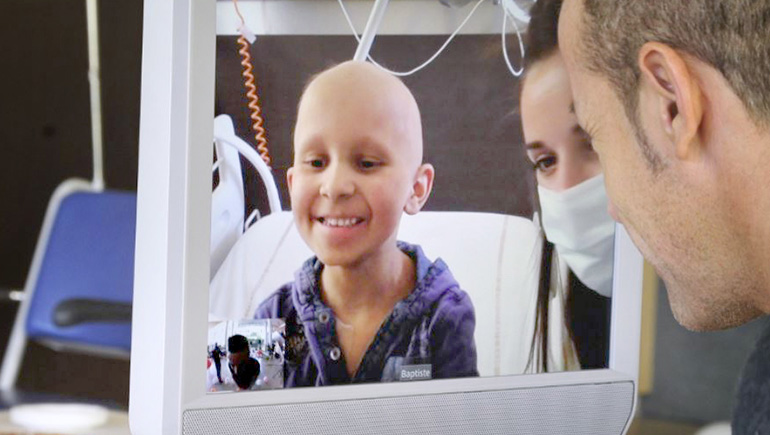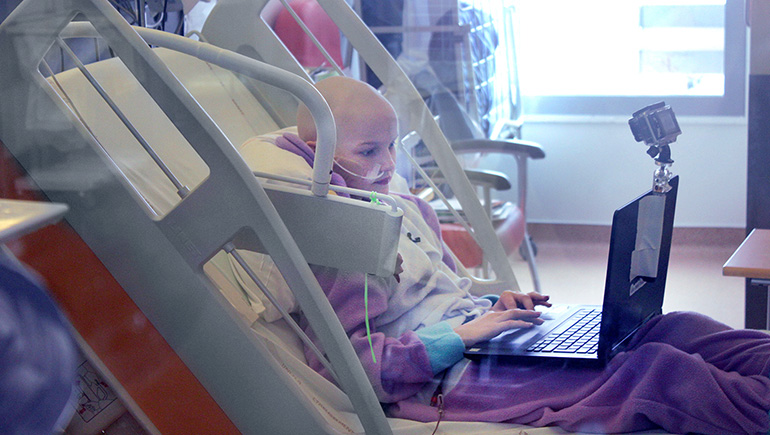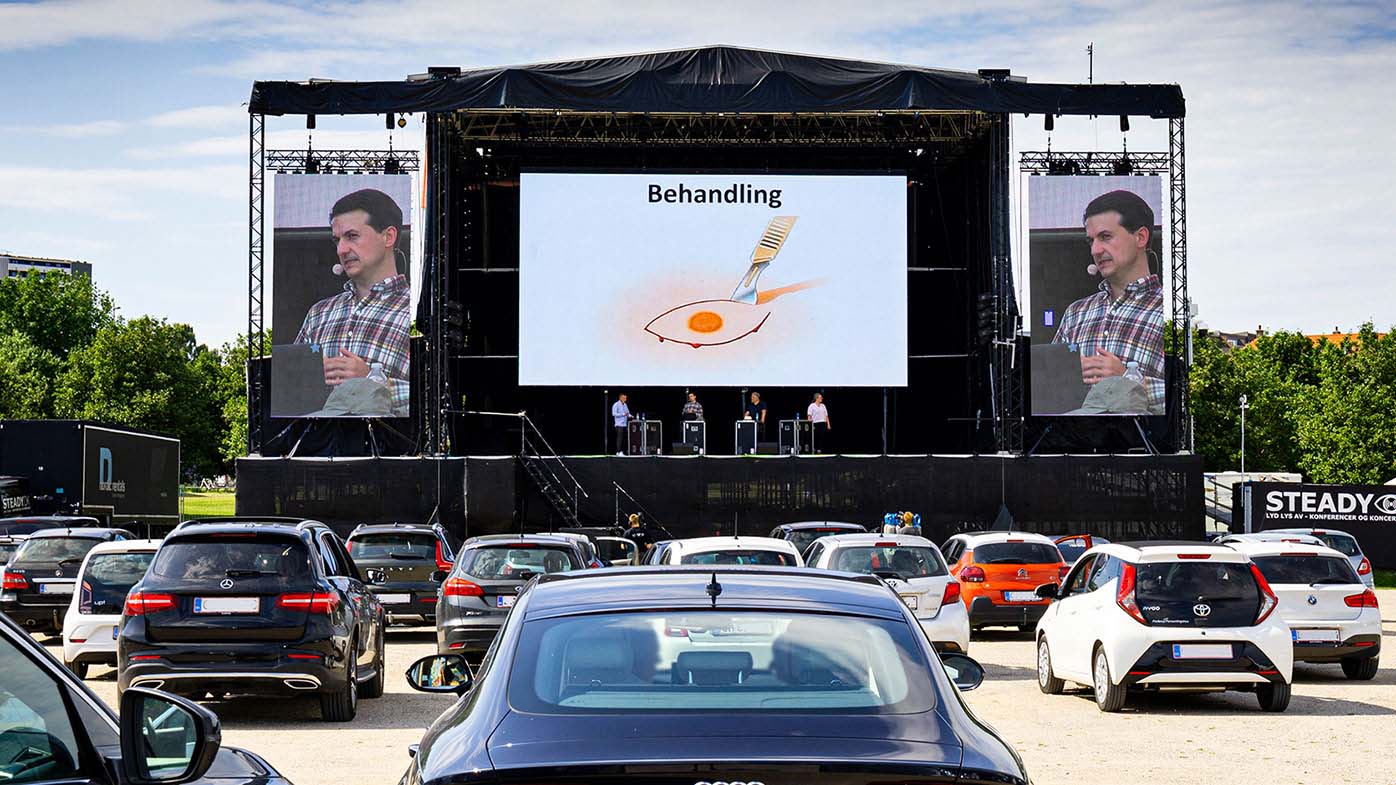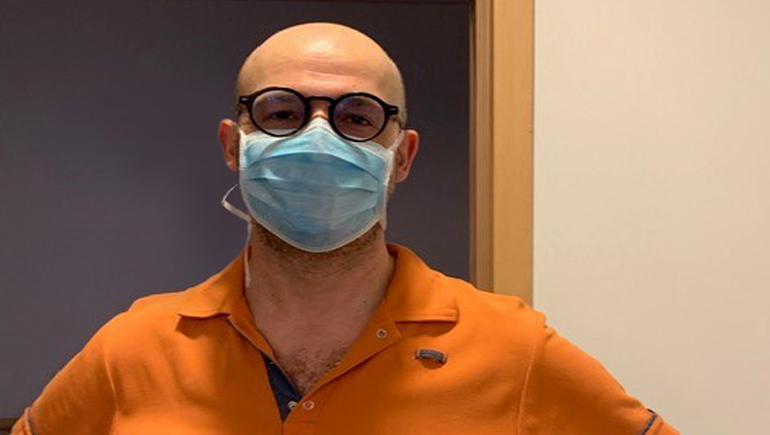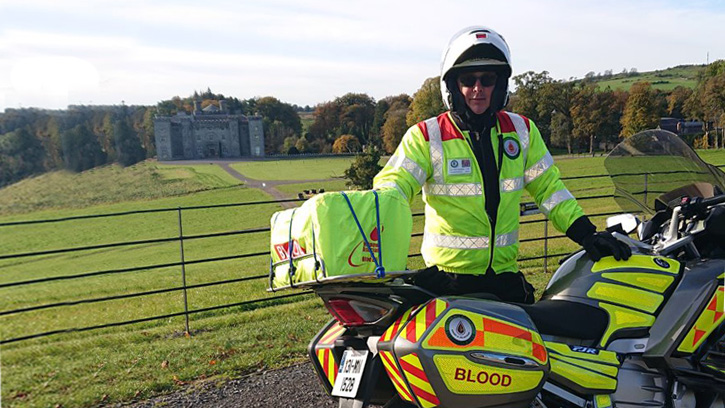A telepresence robot is a remote-controlled, wheeled device standing about the same height as a 10-year-old child. It typically has wireless internet connectivity and provides video and audio capabilities on an attached tablet. Telepresence robots are also used in other industries, often to stand in for tour guides, night watchmen, factory inspectors and healthcare consultants.
Placed in the patient's home or classroom and linked by WiFi or a 4G connection, the child controls the robot's movements and interacts with the outside world through video screen on a personal computer. This provides the otherwise-isolated patient with a presence at home or in a classroom, allowing him or her to join in family conversations at mealtime or participate with teachers and peers in learning activities.
VIK-e was developed by Awabot, a French robotics startup and introduced at hospitals in France in September 2016. It is the first program of its kind in France.
VIK-e is a collaboration bringing together Bristol Myers Squibb France, and the Institute of Haematology and Paediatric Oncology of Lyon (IHOPE), the Health Corporation Group of the Centre Léon Bérard and the Hospices Civils de Lyon, the Philanthropic Association of Parents of Children with Leukemia or Other Cancers (APPEL) and Awabot.
For employees at Bristol Myers Squibb France, keeping patients at the center of everything they do means working to improve the lives of one of the most vulnerable group of patients, children and young people living with cancer.
“There is still a long way to go in fighting the disease and its long-term consequences,” said Jean-Christophe Barland, who led the project at the time as senior vice-president and general manager of Bristol Myers Squibb France.
“This battle is complex and we know that we need to continue our commitment to helping young patients and their families,” he added. “VIK-e is a fundamental project for us, not only because it is a first for hospitals in France but also because it is the result of a great collaboration focused on fostering a better quality of life for young patients during and after cancer treatments.”
